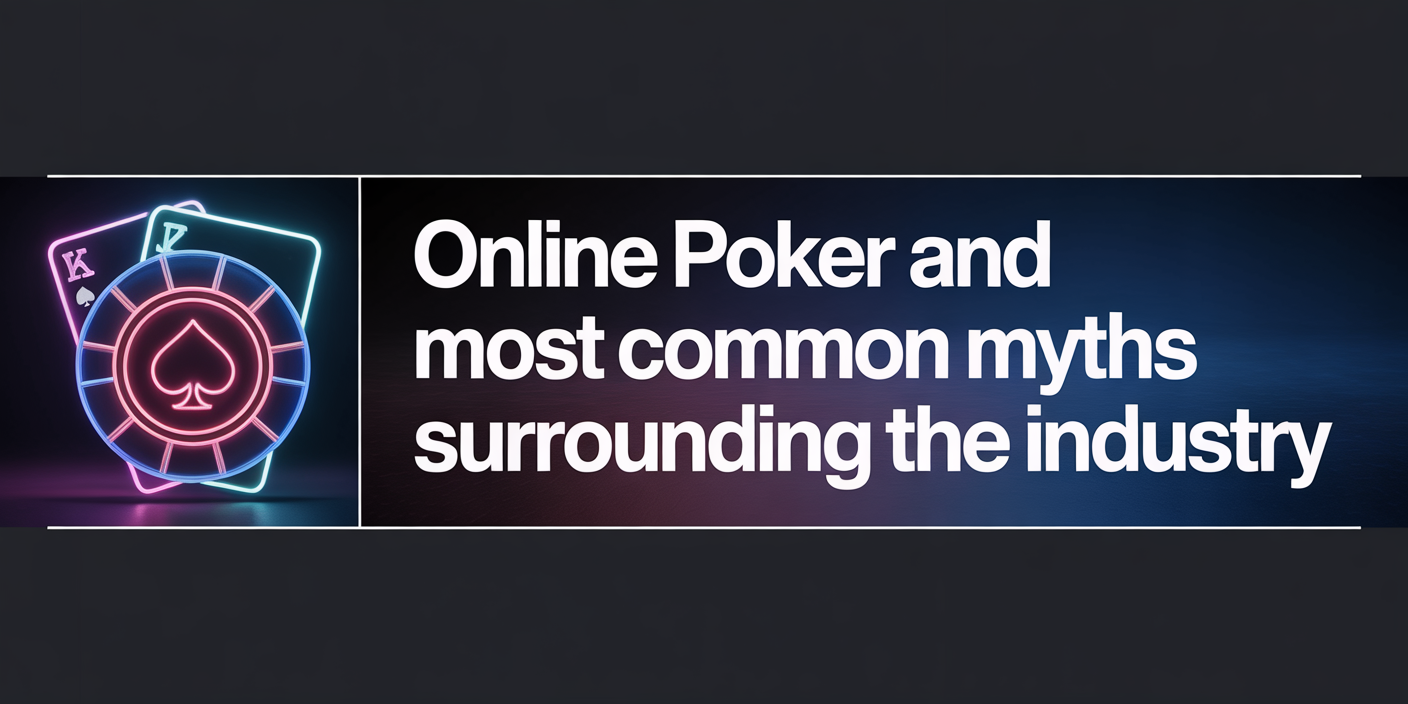Online Poker and Most Common Myths Surrounding the Industry

No doubt, online poker is among the most popular games of online gambling. It brings together thousands of players from all corners of the globe, including Finland, who rely on their analytical brains and strategic skills. Meanwhile, the industry has turned into a subject of numerous myths, having a tendency to distort the game. For those looking where to play, below is a convenient list of top video poker casinos that also offer other poker styles like old-fashioned Texas Hold'em and Omaha.
Top 5 Common Myths About Online Poker
Internet poker has been around since the early 00s, and over time, millions of poker fans – not to mention among them Finns – have tried their luck at internet poker tables. One key distinction between playing for real money and playing with virtual, non-monetary chips should be mentioned.
In real-money games, players tend to be much more invested in beating their opponents due to the financial stakes. In contrast, games played with play money often see more risky or experimental decisions. Here, we’ll focus on myths related to real-money online poker, which has become the source of several persistent beliefs over the years:
Myth 1: Poker is a game of luck where only chance decides the winner
This is amongst the most common myths and is typically used to discredit the industry. In reality, poker is a game of strategy, analysis, and psychology. Players who understand probability, are good readers of people, and know how to make the best decisions have a much higher chance of winning.
Myth 2: Online poker is always rigged
Yes, the internet carries dangers with it, and online poker is not an exception. There are dishonest users and websites. However, there are reputable and licensed poker rooms with stiff rules and policies of honest play. Finnish players need to choose reputable operators with a good name and international valid licensing.
Myth 3: Poker is only for professionals
There is room for novices, middle-range players, and old-timers to play online poker. All can start learning and develop step by step. Most sites also offer free tournaments or low-stakes games specifically for beginners, so Finnish players can acclimatize in a non-threatening environment.
Myth 4: Online poker is a quick way to get rich
While online poker does offer the potential for winnings, it requires time, effort, and education. Winner players invest much time in reading strategies, in learning probabilities, and in acquiring sound decision-making habits. One must be prepared mentally for losing streaks (downswings) and in having proper bankroll control to boot, since even a winning streak (upswing) can easily turn around.
Myth 5: Online poker is like a casino
This myth is overlooking poker's interactive and strategic nature. Poker is unique from strictly luck-based casino games where the player battles the house; poker is face-to-face player-versus-player competition. You can triumph even without the greatest hand by outplaying your opponents. This is a distinct differentiation specific to Finland, where online gambling regulation is founded on defending players and openness.
Online Poker: Bots, Superusers, and Rigged RNGs
We should discuss the "holy trinity" of conspiracy theories in online gaming: bots, superusers, and rigged random number generators (RNGs).
On poker forums and social media, you’ll find many complaints from frustrated players. These often come from inexperienced users who claim the room is “stealing their money” or that the RNG is “rigged” in favor of certain players. Some even suggest that platforms reveal opponents' cards to selected players or that bots connected to AI are dominating tables.
Most of these claims are unfounded for several reasons. Nearly all serious poker rooms have their RNGs certified and possess several international licenses. These ensure that the operator is adhering to fair game principles. For sites already licensed to play in or accessible to Finland, jeopardizing their reputation for some cheating would be financially irrational. Any wrongdoing proven would result in the immediate withdrawal of their license and bans in regulated markets, like the Finnish one operated by the National Police Board.
In terms of bots, the situation is slightly different. Certain channels have indeed discovered bot accounts in recent years. However, their behavior is usually easy to identify, and major sites invest a lot of time monitoring gameplay, filtering for dubious patterns, and suspending cheating players.
Conclusion
Poker is a game of skill, a game of strategy and calculation. Dispelling widespread myths about the industry provides a truer representation of what online poker really provides. To those in Finland looking to challenge their minds as they experience an electrifying experience, online poker can be a fascinating source of entertainment – provided, of course, that it be done responsibly and with an open mind.